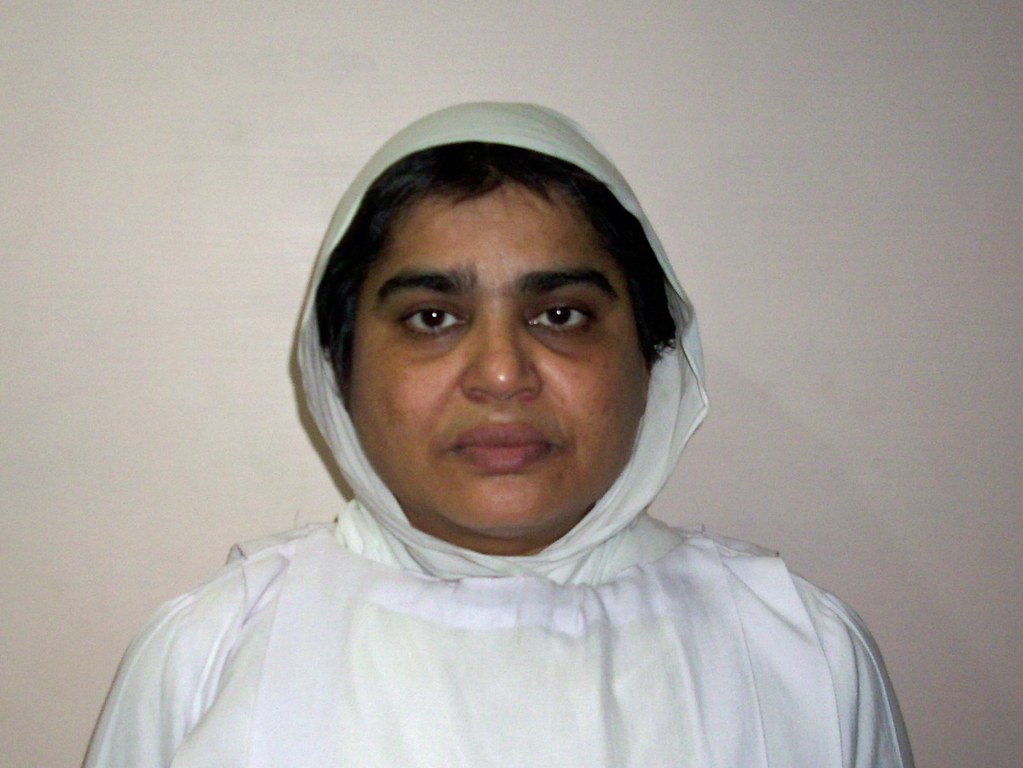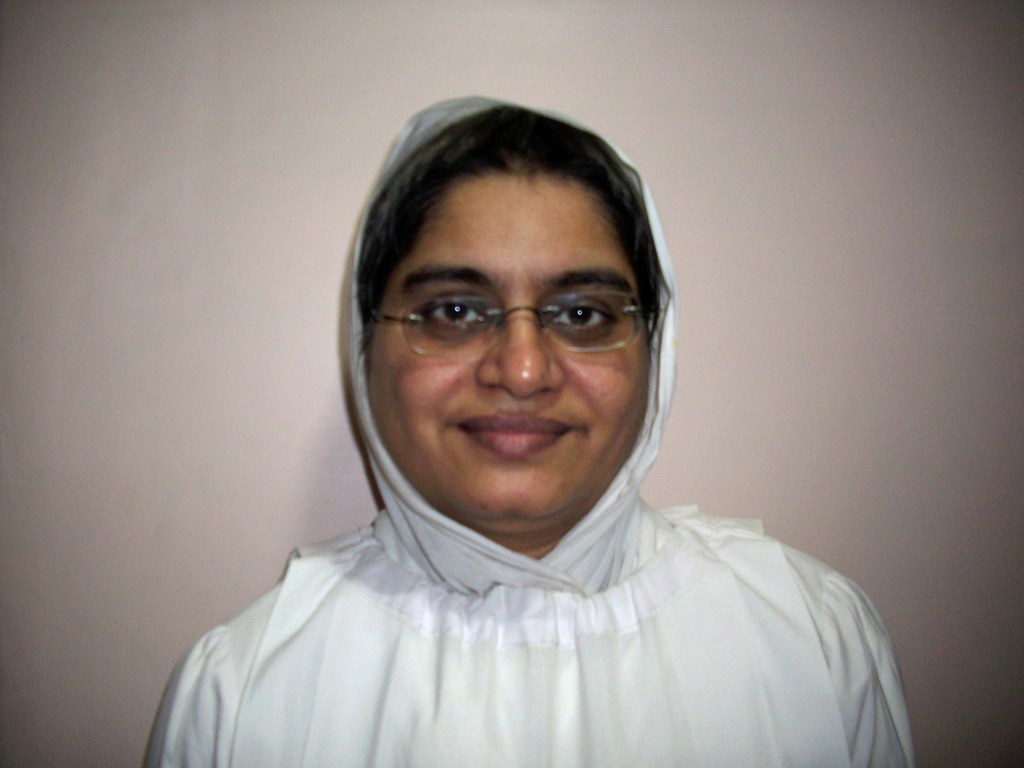

Samvatsari Mahaparva
The last day of the eight days religious worship - “Paryushan Mahaparva” is known as Samvatsari Mahaparva, that is the Great Annual Festival. Millions of people observe a fast on this day, recite the deity’s name, practice meditation, engage themselves in studies, listen to discourses & undertake deep self-analysis.
Hundreds of men & women from Raipur and adjoining area came for celebrating the Samvatsari Festival under the pious presence and guidance of Samani Nidesika Bhavit Pragyaji and Samani Vipul Pragyaji. The Programme started well before the sunrise with lay followers coming in for their daynight long Poushadhbrata.
Samani Bhavit Pragyaji said that, the Samvatsari is a festival of “Atma-Sadhna”. She said that Jain Philosophy views Tapa as nirjara. Nirjara means the eradication of karmas. Tapa is generally known as fasting in which food & drink has not been taken except the water. There are 12 types of Tapa including six internal and six external. Tapa is a process of training the body and mind to endure pain and pleasure, hunger and thirst, heat and cold etc.
External Penance
1. Anashan - fasting
Renounce the food for a day or more.2. Unodari - Eating less than needed
Eat a few item of food less than what you require.3. Vrittisnakshep - limiting desires
Make a resolution to live with the minimum of necessities regarding food, material object etc.4. Rasparityag - Relinquishing tasks
Renounce all, one or more according to the extent of your desire.5. Kayaakalesh - Being physical pain with equanimity.
6. Pratisanlinta - Control of sense and mind
Renounce attachment of the body, and develop a capacity of physical tolerance through asana.
Internal Penance
7. Prayashchit- Repentance
Repent for the rectification of the transgression in the religious discipline8. Vinay - Courtesy
Respected behaviors9. Vaiyaavrttya - Render Service
Giving service to the sick, olderly person.10. Swadhyaya - Spiritual Study
Impart training and preaching the disciple11. Dhyana - Meditation
12. Kayotsarga - Abandonment of the body.
Focus the mind on a particular object.
Practice detachment of the body and awareness of the soul.
Austerity is a source of vital energy. Through austerity a person achieves purity of soul.
Jainism is the oldest living religion of India. It has been lively, progressive and informative. The word Jain has been derived from jin which means conqueror. In Sanskrit, the work jin means conquest all bondage of birth and death. The Jains are their followers who practice the path set down by jina and the religion is followed by those known as the Jain religion. Jainism was founded and expounded originally by Lord Rishabha. He inaugurated the age of action, the beginnings of human civilization, and the practice of religion. He also accorded inspiration of spiritual upliftment of mankind with multi-faceted development. Each tirthankara reinstates the Jain order known as jain sangh. The twenty fourth and last tirthankar, Lord Mahavira gave organizational shape to the present tradition about 2550 years ago. He established tirth consisting of monks, nuns, laymen and laywomen. Tirth is known as sangha which means the union of four components; Sadhus, sadhvis, shravakas and shravikas. Among the many contributions of the tradition Ahimsa (Non-Violence), Aparigraha (Non-Possession) and Anekanta (Non-Absolutism) are the most vital, valuable and relevant concepts of today just as it was in the ancient epoch. Non violence means not to kill, hurt, harm, oppress or enslave any living being by means of mind, speech or action. Violence is not only the infliction of physical injury, but also the occurrence of violent words or thoughts. There are three types of himsa in Jain scriptures:-
- Arambhaja violence, which unavoidably occurs in making a livelihood such as in agriculture or industry.
- Virodhaja violence, which occurs in combat to defend one’s country.
- Samkalpaja violence which appears to be intentional.
Being a social creature, it is hard to abstain from arambhaja and virodhaja violence, but man must give up intentional violence. The positive aspects of ahmisa implies forgiveness, compassion, respect for the virtuous etc.
Parigraha means having the desire to possess. As long as one has desire to possess, one never escapes committing violence. Greediness is the main cause of all sins. Lord Mahavira expounded the doctrine of Aprigraha(non-possession) to solve world wide problems. Less desire leads one to do less violence. If the principle of Aprigraha(non possession) is followed, the heavy work for the welfare of humanity and other activities can be facilitated.
The word Anekanta consists of three words; anek means many, anta signifies attributes and vada refers to the description which means the description of manifold attributes. Anekanta regards each and every object, which is synthesis of qualities of permanence and change, similarity and difference etc. From the point of view of substance, it is permanent and from the standpoint of modes, it is changing. Without substance mode does not exist and vice- versa. Both are inseparable and complementary. Anekant says that if a person looks at a thing from a single perspective, he understands the thing only partially. If the same person applies the principal of multiplicity of viewpoints and analyses the object from different perspectives or points of view, then he will understand it well.
The two principle communities of Jainism are the Digambar and Swetambar. The term Digambar means without cloth, whereas Swetambar implies with cloth. The swetambar is also divided in to three sub sects namely Murtipujak, Sthankvasi and Terapanth.
Acharya Bhikshu founded Terapanth in 1817 after Mahavira’s salvation. He was disciple of Acharya Raghunathji and revolt against the discrepancy between practice and the actual texts. The fundamental convention is Terapanth is that there is one Acharya and all monks and nuns are his disciples. Acharya has supreme power. Acharya Bhikshu organized the monastic order in more disciplined and systematic form. He was fully against the buildings being reserved for the monks as well as other issues. He made real interpretations of the concepts of piety and charity etc. based on old jain literature.
Today is the day of Forgiveness. Forgiveness shows magnanimity of the mind and purity of the soul, moreover the inner strength of sufferance. The man endowed with forgiveness is freed from the poison of bitterness & he becomes like nectar. It is, therefore, necessary to disseminate forgiveness far and wide. On the occasion of this great Festival of Forgiveness ‘SAMYAKTVA RATNA’ is the most valuable jewel. This jewel is to be kept secured for the development of our soul. The day of ‘SAMVATSARI’ provides a golden opportunity to us for making our health & mind beautiful & of interaction with our own self. The religion forgiveness emphasizes give and seek forgiveness heartily.
Samani Vipul Pragyaji acquainted the lay followers with the importance of Pratikaman (an act observed whereby one confesses the transgressions committed during the day). She said it is a must for every lay follower to perform Pratikaman on this day of samvatsari.
Inspired by her speech and also continuous preaching by Samani Bhavit Pragyji, Most of the active youngsters who were busy with the organizational part of the Raipur during the paryushan, came forward and joined with 4 prahari poushadh (an act by which one becomes a muni for from sunset to sunrise).
Hundreds of people had observered the fast & nearly 100 men & women has done the posadh (adopting saint life for one day).
 Ritu S. Jain
Ritu S. Jain